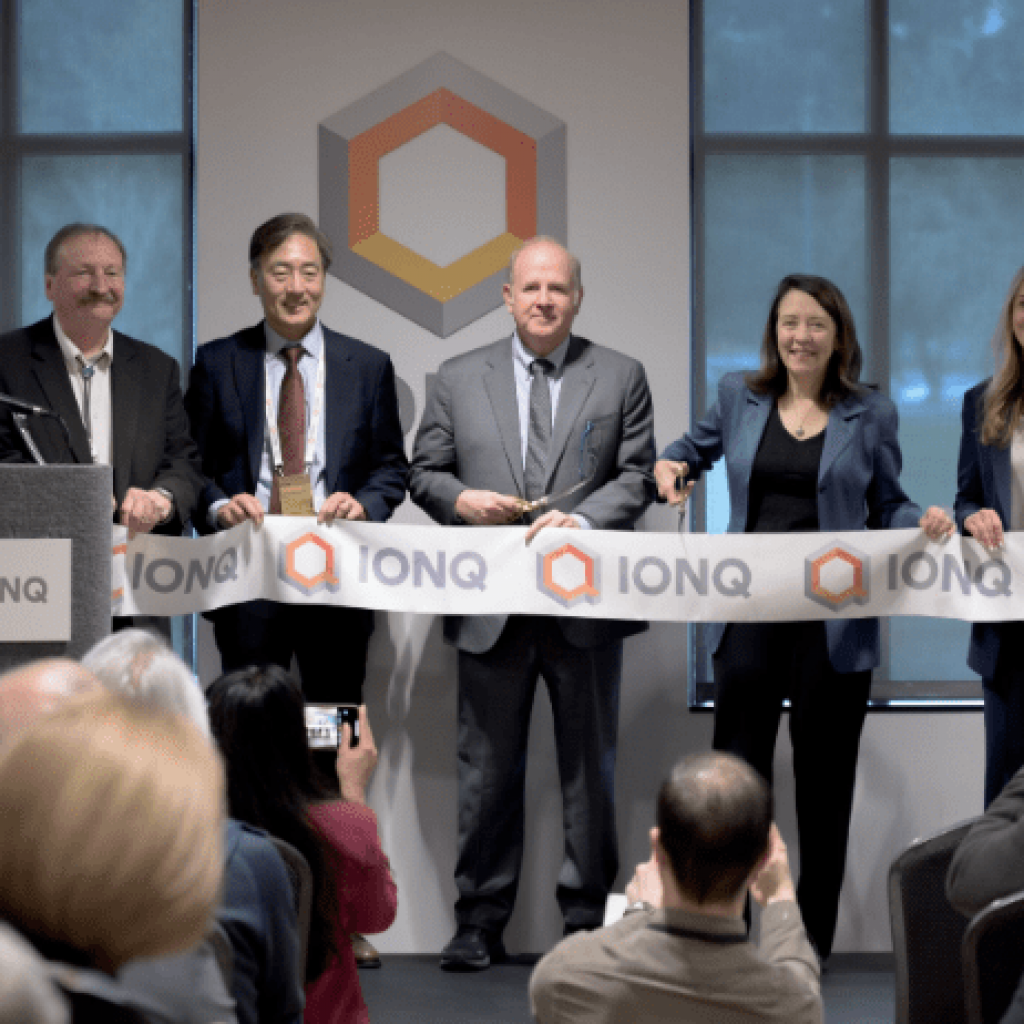IonQ has officially opened its long-anticipated manufacturing and R&D facility in the Seattle area, also revealing that the footprint of the facility has already been expanded from its originally planned 65,000 square feet to 105,000 square feet.
This week’s formal building opening, which was attended by, among others, Sen. Maria Cantwell (D-Washington), comes a little over a year after IonQ announced its vision for the facility, a former AT&T data center in Bothell, Washington, and six months after IonQ chief Peter Chapman told IQT News that the building was due for a partial opening toward the end of 2023.
In a statement, IonQ called the facility the first in the U.S. that will be able to manufacture quantum computers that “are replicable and deployable in customers’ data centers,” a claim likely to go unchallenged. (Rigetti Computing opened a QPU manufacturing facility in Fremont, California, in 2017.)
The Bothell building will also be IonQ’s second quantum data center and will provide cloud access to IonQ customers. In addition to being the company’s primary production engineering location in the U.S., it will also house IonQ’s expanding R&D and manufacturing teams, including those focused on the upcoming rollout of the next-generation IonQ Forte Enterprise and IonQ Tempo systems. The company has already sold a Forte and a Temp machine to a European research group and landed a contract with the U.S. Air Force Research Laboratory for two more systems. Chapman has said several times over the last six months that he expects more system sales to occur this year and into next year.
IonQ has said the Seattle area factory will put it at the center of a deep Pacific Northwest tech talent pool that will help it “create thousands of new jobs.” Chapman, a former Amazon executive, has worked in the Seattle area at least on a part-time basis throughout his IonQ tenure. IonQ has said over the last year that its headquarters would remain in College Park, Maryland, where the company was founded after licensing key technology from the University of Maryland, although IonQ co-founder and former Maryland professor Chris Monroe left the company last fall to return to academic pursuits, and it would not be a surprise if IonQ eventually moved its HQ, at least nominally, to the Bothell building.
“The Seattle facility represents a tangible realization of IonQ’s commitment to commercializing quantum and getting quantum computers into the hands of customers,” said Chapman. “IonQ is not just building a manufacturing facility; we’re also investing in the surrounding community, drawing talent and thought leaders to Seattle, and empowering organizations within the community with innovative quantum capabilities.”
Sen. Cantwell, a staunch advocate for science and technology research and the lead Senate negotiator of the CHIPS and Science Act in 2022 added, “Quantum computing is blossoming in our region thanks to an ideal ecosystem of world-class universities, businesses, laboratories, and talented workers.”
Dan O’Shea has covered telecommunications and related topics, including semiconductors, sensors, retail systems, digital payments, and quantum computing/technology for over 25 years.
